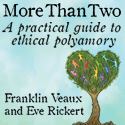 |
 |
 |
 |

Follow The InnKeeper on:
Atheism vs. Agnosticism
 There is an awful lot of misunderstanding about the words "atheism" and "agnosticism". I see a lot of atheists hide behind the word "agnostic" because they "don't know for sure" or they don't want to piss anyone off. And that's incorrect. They are still atheists. People also like to claim that atheism is a "belief that no god exists" and is therefore the same as a religion. As someone once said (and I wish I could remember who), to say that atheism is a religion is like saying not collecting stamps is a hobby.
There is an awful lot of misunderstanding about the words "atheism" and "agnosticism". I see a lot of atheists hide behind the word "agnostic" because they "don't know for sure" or they don't want to piss anyone off. And that's incorrect. They are still atheists. People also like to claim that atheism is a "belief that no god exists" and is therefore the same as a religion. As someone once said (and I wish I could remember who), to say that atheism is a religion is like saying not collecting stamps is a hobby.
Let's look at the words themselves.
Gnostic: from the Greek word "knowledge".
Theism: belief in a deity or deities.
A (prefix): without.
First, the prefix "a" means only "without" or "absence of". It does not make any assertions, claims, or statements as to the presence of anything. I don't have a stamp collection. I don't spend a lot of time thinking about not collecting stamps and I don't do anything in particular to avoid collecting stamps. I just don't collect stamps. I am atimbromanic (without stamp collecting). No reasonable person would then say that I have a hobby of not collecting stamps. It is an absence of collecting stamps, not an active not-collecting activity.
An atheist, is simply lacking belief in a deity.
An agnostic is simply lacking knowledge of something.
I can be agnostic about the conflict in the Middle East. It doesn't mean that I don't believe there is a conflict. It means I don't know anything about it. Maybe I don't believe there is a conflict, or maybe I do, but I don't have knowledge about it. Many people are agnostic about urban legends or conspiracy theories. They don't know because they don't have any evidence, but they can believe anyway because it somehow "makes sense" or makes someone "feel" something they want to feel. Ever hear someone say "well, I don't know for sure, but I heard X and it makes sense to me"? That's agnosticism.
One word is about knowing something, and the other word is about believing something. These are two different concepts. To know something is to be aware of the truth or factuality of it (where "truth" is empirical and either is or is not true - none of this "my truth" bullshit that refers to personal opinion or subjective feelings). But to believe is to accept a claim without necessarily having proof, evidence, or even plausibility, without "knowing" the truth. One word relies on empirical evidence, outside of oneself, and the other relies on one's feelings, an internal sense.
And because these are two separate concepts, they are not mutually exclusive. One can have belief without having knowledge, or one can have belief because one has knowledge. One can lack belief because one lacks knowledge, or one can lack belief because one has knowledge of that belief's falsehood.
People can also be atheistic about some deities but theistic about others, and people can be agnostic about some things and gnostic about others.
For example, Christians are atheistic about the Greek gods. They do not believe in them and consider them "false idols". They do not believe they ever existed. But they are, of course, theistic about their god. This person might be gnostic about, both, his theism of his god and his atheism of other gods. He would "know" that his god exists and others don't.
Meanwhile, an atheist can be gnostic about the Abrahamic god because the atheist has evidence that is incompatible with the definition of the Abrahamic god, but may be agnostic about the existence of a god of some sort - maybe one that hasn't been defined yet. The atheist may be willing to admit that some sort of supernatural deity is possible because "we just don't know everything" while simultaneously rejecting the gods presented thus far because the definitions contradict what we know of the universe or are internally inconsistent. So this person's atheism would be simultaneously agnostic about some gods and gnostic about others.
Here's a handy little chart to help illustrate the point:
| Atheism (without belief) | Theism (with belief) | |
| Agnostic (without knowledge) | Lack of belief in a deity or god, and lack of knowledge about the truth of the belief. This is a person who might say "There probably is no god, but we don't really know for sure". This person makes no positive assertions about the existance or non-existence of deities, but lacks belief in a deity.
Also called "Weak Atheism" |
A belief in a deity, but lack of knowledge about the truth of the belief. This is a person who might say "There is no way to really know for sure, but I believe in a god anyway". This person makes no positive assertions about the existance or non existence of deities, but believes in one or some without that certainty.
Also called "Weak Theism" |
| Gnostic (with knowledge) | Lack of belief in a deity or god but claim of knowledge that this is the truth. This is a person who might say "I know there is no god". This person makes a positive assertion about the lack of a deity.
Also called "Strong Atheism" |
Belief in a deity or god and also a claim of knowledge that this is the truth. This is a person who might say "There IS a god, I know it for certain and nothing you can say will convince me otherwise." This person makes a positive assertion about the existence of a diety.
Also called "Strong Theism" |
Now where this gets complicated, is that any good scientist or science-minded person very rarely makes emphatic, declarative statements. The nature of science is that we don't have "the answers", we have a good working definition that is subject to revision if a better definition comes along.
So even most "Strong Atheists", people who claim to "know" there is no god, don't actually mean they "know" with 100% certainty that there is absolutely no god or supernatural being of any sort. That's where the "atheism = religion" people get tripped up. When a Gnostic Atheist says "there is no god", what he usually means is that all the evidence so far supports the positive assertion that there is no god. He also usually means that there is enough evidence to be "reasonably certain" that there is no god, certain enough to act as though there isn't. He is also usually willing to change his mind with sufficent evidence and believe in a god, it's just that no one has presented him with enough evidence yet, and enough evidence to the contrary exists to continue on through life without a belief in god. The belief that one must be absolutely 100% totally and completely certain before one can make any claims of knowledge is called The 100% Solution. But, in science and skepticism, we do not claim to have the 100% solution, and, as Greta Christina explains in the link, it doesn't matter - we do not need to be 100% certain in order to be reasonably certain and to go about our lives. And being reasonably certain is what a skeptical or science-based atheist means when they say "I know".
But when a Theist claims to "know" there is a god, more often than not, this is where you get dogma. This is a person, usually, who absolutely will not change his opinion, even in the face of evidence, and who holds his unquestioning faith in the face of contradictory evidence as a virtue. This is often a person who takes pride in the fact that his belief withstands contradiction, usually because his religion dictates that unquestioning obedience is required. Pretty good population control, actually, to convince people that they want to blindly believe what this guy says even when presented with contrary evidence. If you can convince people that believing what That Guy says without evidence, and believing what That Guy says even in the face of contradictory evidence, you can get people to do anything just because That Guy said so. Neat trick.
So when we have two groups of people using the same word in totally different ways, we end up with some religious people accusing atheists of being dogmatic, having a "belief", and having "faith", because the Theist's definition of "know" incorporates those elements even when the atheist's definition of "know" does not.
So, one more time for those who didn't get it the first dozen times.
Atheism means "without belief in god" and that's it.
Theism means "belief in a god or deity" and that's it.
Agnosticism means "without knowledge" and that's it.
Gnosticsm means "knowledge" and that's it.
Atheism does not mean "a belief that there is no god".

Agnosticism is not a middle ground between atheism and religion. It might inform the nature of one's atheism or theism, but it is not a compromise or a halfway point between some fictional "dogmatic" atheism and theism (of dogmatic persuasion or no). Most atheists are also agnostics, and most people who use the label "agnostic" are actually atheists, since, even though they don't claim to have knowledge of no-god, they are, de facto living without god. Technically, one can be an agnostic theist, but they don't tend to use the label "agnostic", they tend to go with whatever label matches their religion of choice.
For those who prefer visuals or audio, as opposed to text, here's a very cute girl explaining the difference in a video:
For the record, I am a gnostic atheist about all deities so far proposed, while I am an agnostic atheist about all supernatural entities not yet proposed. I lack the belief in the supernatural because I possess knowledge that contradicts claims made by beliefs in the supernatural. All deities so far proposed are internally inconsistent and/or logically contradictory and cannot therefore be possible. But I cannot claim to know ALL possibilities, even those not yet proposed, so I am "agnostic" with regards to those claims not yet researched but I believe them to be unlikely. The evidence for a universe without supernatural elements is compelling enough for me to be reasonably certain that there is no god, and certain enough for me to live as though it were true.
More About The InnKeeper
The Inn Between © 2002

























